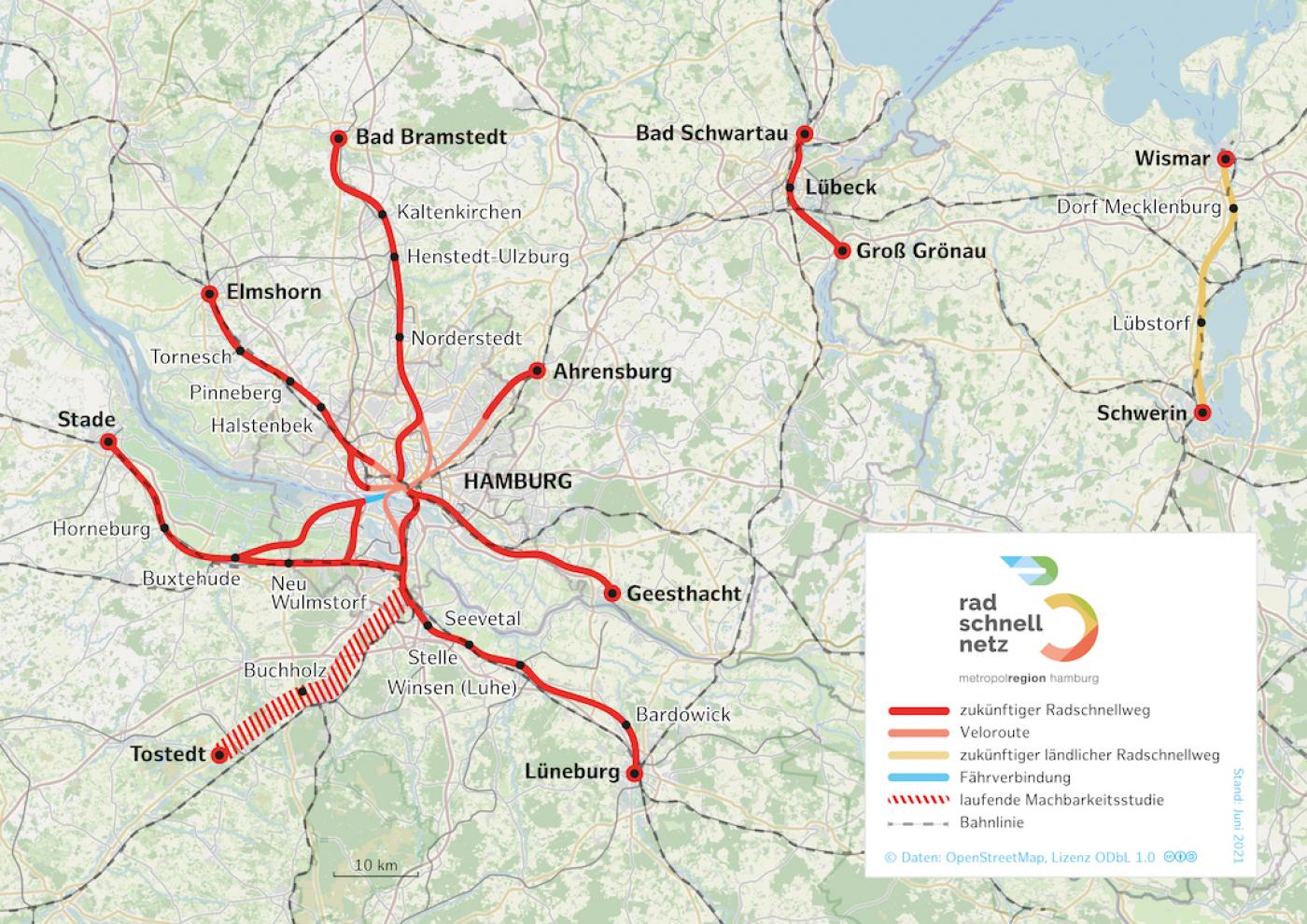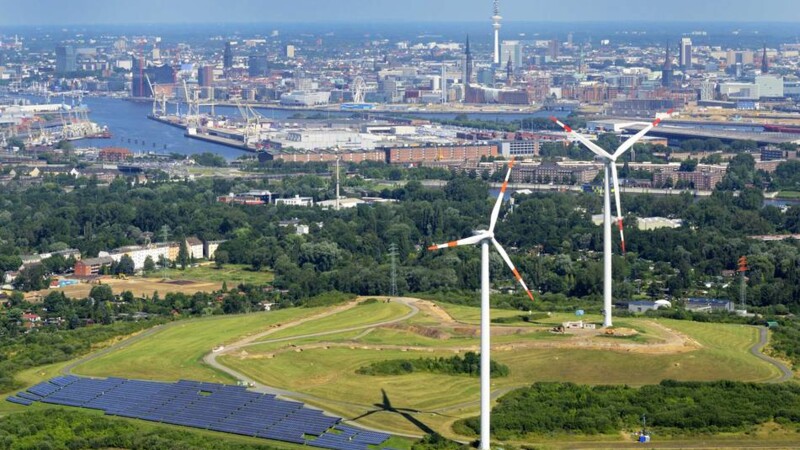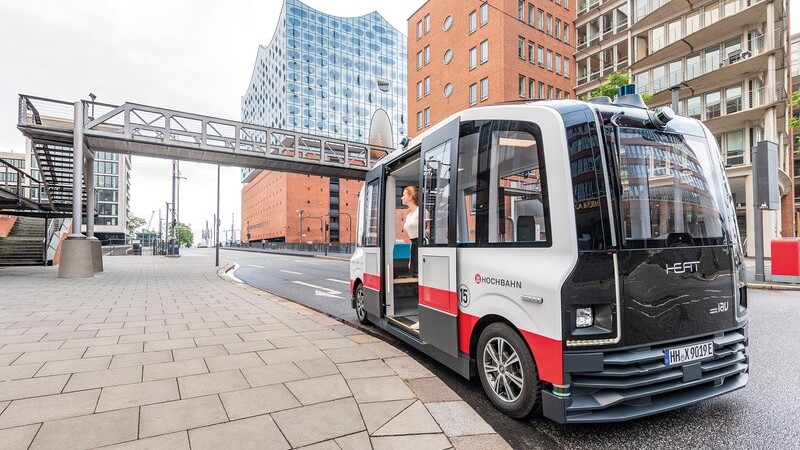"We have developed a regional cycle fast network aimed at half a million commuters in four German states," said Andreas Rieckhof, Chairman of the Regional Council of the Hamburg Metropolitan Region. "Cycling expressways especially in urban centres such as Hamburg and Lübeck have the potential to provide noticeable relief on the roads. They help solve many challenges to cross-border public transport and spatial planning, which we are tackling based on the OECD's recommendations." The German government is providing Hamburg, Schleswig-Holstein, Mecklenburg-Western Pomerania and Lower Saxony with EUR 25 million per annum for the network until 2023. The funds will have doubled to EUR 50 million by 2023 as part of the climate package.
Cycle network routes for Hamburg Metropolitan Region presented
Feasibility studies and recommendations for eight of nine cycling routes in the Hamburg Metropolitan Region’s 300-kilometre long network were presented Monday (August 9, 2021) paving the way for joint planning, financing and construction. The study has been funded by the Hamburg Metropolitan Region with EUR 1 million and aims to shift some commuter traffic from cars to bicycles.
Regional cycling network for 500,000 commuters
Cycle highways and good connections
The feasibility studies make concrete statements about sensible routes and construction measures for all cycle highways. For all routes, a connection was found that enables the high standard of development demanded by the federal and state funding agencies. Routes were recommended that connect as many residential areas as possible to workplaces in companies, further education schools and railway stations. They are preferably linked closely to rail transport, are on existing roads and well embedded in settlements and the landscape.

Focus on planning, first section under construction
Many towns, districts and states are about to start planning the first sections of the network. Individual construction phases have been established to clarify land issues or complex measures such as bridges. Work on the first sections in Hamburg is already underway i.e., the old freight track on the U1 is being upgraded in the direction of Bad Bramstedt (see map). Six kilometres will be entirely without traffic lights and cars on completion. The route via the Pergola cycle path and the Alster axes, one of the longest in the overall project, will lead seamlessly into the city of Hamburg. A ground-breaking ceremony has been scheduled for 2024. Work is also already underway in Halstenbek in Schleswig-Holstein. A first section is already being built between Ochtmissen and Bardowick in Lower Saxony.
cb/sb/pb
Sources and further information
Feasibility studies
The Technical University of Hamburg (TUHH) examined the potential of 33 so-called corridors and marked out nine routes for in-depth consideration based on their connectivity to Hamburg's cycle routes and to public transport. The feasibility studies worth EUR 1.2 million were financed to 80 per cent by the Hamburg Metropolitan Region's development funds. Ten planning offices from Germany and abroad were involved in the studies.
More
Similar articles

Hamburg Copenhagen Business Forum to focus on ecological growth

EUR 30 million in EU funds for projects in Hamburg

